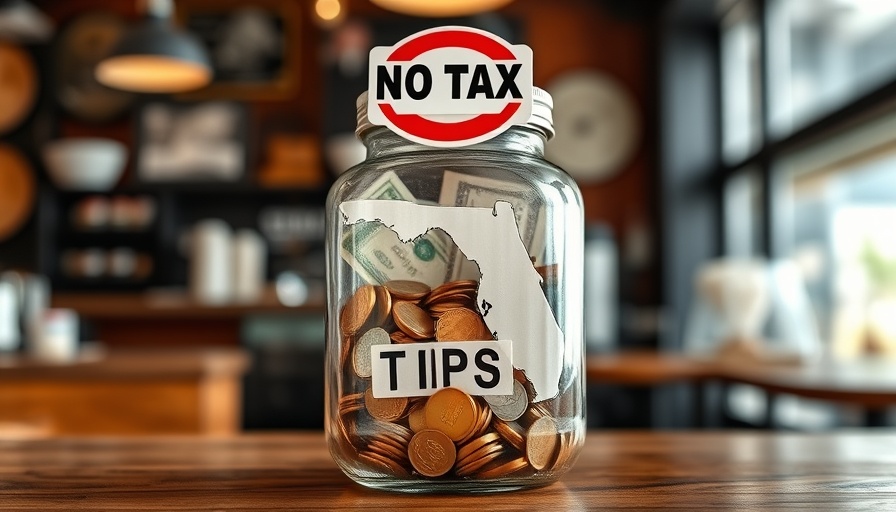
Understanding the 'No Tax on Tips' Deduction
The recent tax incentive often referred to as the "no tax on tips" deduction is set to have significant implications for workers in several industries across Florida. While the moniker might suggest there are no taxes involved, the reality is that eligible workers can deduct substantial amounts from their taxable income, with up to $25,000 available for qualified tips earned from 2025 to 2028. This initiative is designed to lighten the financial burden on those who earn a significant portion of their income through tips.
Who Stands to Benefit?
More than 60 job categories have been outlined by the U.S. Treasury Department that qualify for this deduction. Let's take a closer look at who these individuals are and how they benefit from the new tax structure.
Key Industries Included
Florida is known for its vibrant tourism and hospitality sectors, which are filled with tipped employees. Some of the highlighted industries include:
- Transportation & Delivery: Taxi drivers, rideshare operators, delivery personnel, and shuttle drivers fall under this category.
- Food & Beverage Service: Bartenders, food servers, and cooks can all benefit, which is crucial in a state renowned for dining out.
- Entertainment & Events: Musicians, DJs, and various performers can claim these deductions, enhancing the appeal for individuals in artistic careers.
- Hospitality & Services: Hotel staff, including housekeepers and bellhops, are also included, reflecting the high demand for services in tourism-sensitive markets.
- Home Services: This category includes electricians and maintenance workers who often rely on tips from satisfied customers.
Connecting with the Community
This tax change is more than just a financial detail; it signifies a recognition of the hard work put in by essential regional workers. The hospitality industry, contributing significantly to Florida’s economy, particularly in tourism hotspots, has been impacted by the pandemic. This deduction is a step toward acknowledging the economic challenges faced by those who rely on tips as a primary portion of their income.
Future Impacts: What to Expect?
Looking forward, this tax initiative can play an essential role in ensuring financial stability for many families dependent on tip-based earnings. As it takes effect, industry experts predict a potential ripple effect: more individuals might be encouraged to join the workforce in these fields, helping meet the growing demand for services.
Common Misconceptions Surrounding the Deduction
Despite its benefits, it’s important to address misconceptions surrounding the ‘no tax on tips’ initiative:
- Misunderstanding the Name: The term leads many to believe there are no taxes on tips, but in essence, it allows for a significant deduction instead.
- Eligibility Confusion: Not all jobs in the service industry qualify. Understanding whether your position falls within the designated roles will be key.
- Short-term Focus: Some workers may think of this as only a momentary benefit, yet it could have lasting implications on income when pocketed wisely.
Take Steps to Maximize Your Benefits
For those who will be impacted by the ‘no tax on tips’ deduction, it's wise to take strategic steps to maximize potential benefits:
- Stay Informed: Keep up with tax law changes that could affect your deductions, and consult tax professionals if needed.
- Track Your Earnings: Maintain thorough records of all tips received to ensure you're claiming the correct amount.
- Educate Others: Share insights with fellow coworkers and friends about how to leverage this deduction to its fullest.
Conclusion: Embracing Change for a Healthier Future
In a society that often undervalues service-oriented professions, this new tax provision could allow tipped workers to enjoy a little more financial relief. As Florida workers become more knowledgeable about their tax benefits, they can empower themselves and their families toward a brighter financial future.
 Add Row
Add Row 
 Add
Add 


Write A Comment